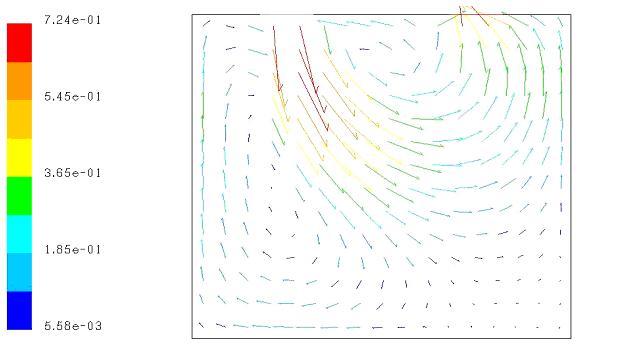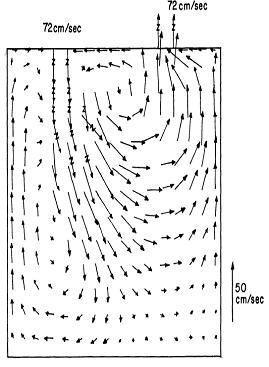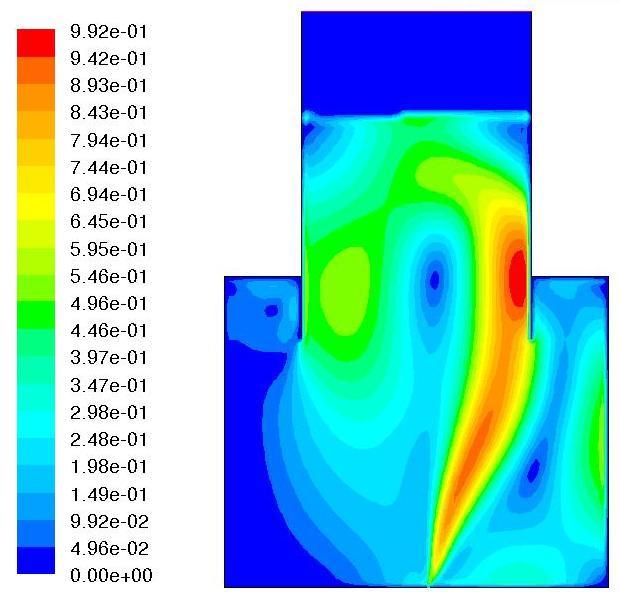REDA (REVOLUTIONARY DEGASSING ACTIVATOR)
In recent times the demand of ultra-low carbon steel (ULCS) with improved mechanical properties such as good ductility and good workability has been increased as it is used to produce cold-rolled steel sheets for automobiles.
For producing ULCS efficiently, it is necessary to improve the productivity of the vacuum degasser such as RH, DH and tank degasser. Recently, it has been claimed that using a new process, called REDA (Revolutionary Degassing Activator), one can achieve the carbon content below 10ppm in less time.
Figure 1. Comparison of computed velocity field of lower vessel in RH process with K. Shrirabe and J. Szeleky, Transactions ISIJ 23, (1983), p465-474.


As such, REDA process has not been studied thoroughly. Fluid flow phenomena affect the decarburization rate the most besides the chemical reaction rate. Therefore, in this study, momentum balance equations along with k-eps turbulent model have been solved for gas and liquid phases in two-dimension (2D) for REDA process.
Similarly, computational fluid dynamic studies have been made in 2D for tank degasser and RH processes to compare them with REDA process. Computational results have been validated with published experimental and theoretical data.

Key Findings:
- REDA process is found to be the most efficient among all these processes in terms of mixing efficiency
- Design of snorkel affects the melt circulation of the bath significantly
- Fluid flow phenomena have been studied in details for REDA process by varying:
- Gas flow rate
- Depth of immersed snorkel in the steel
- Diameter of the snorkel
- Change in vacuum pressure
For further details, queries, or publications related to this research, please contact us through our contact information on the website.